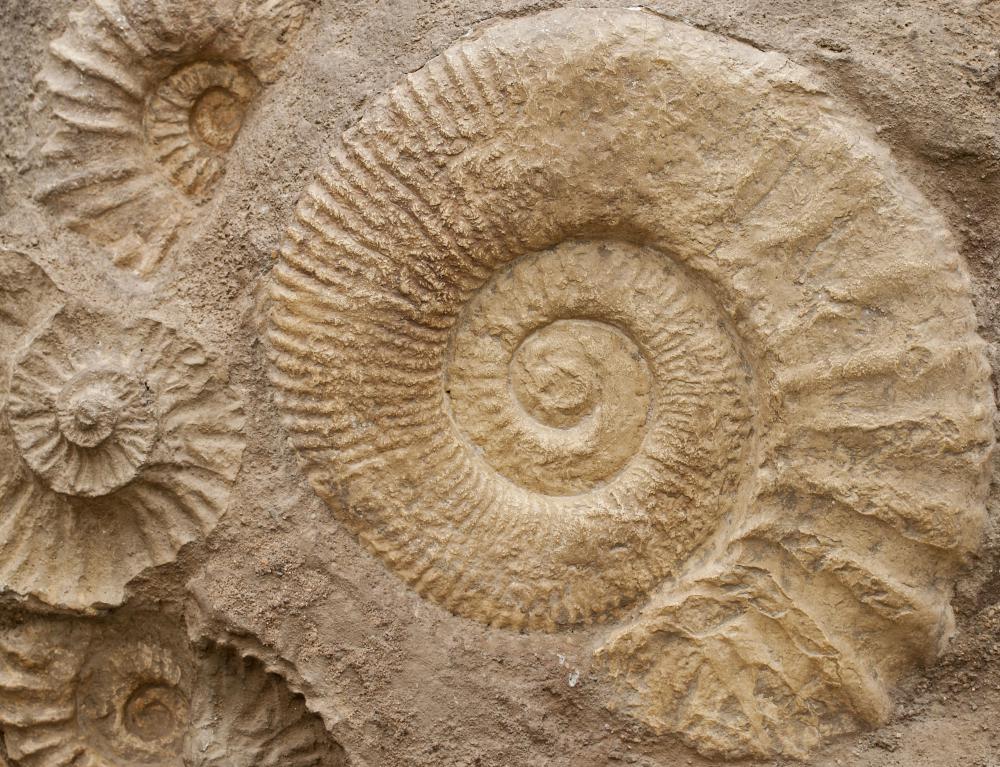At WiseGEEK, we're committed to delivering accurate, trustworthy information. Our expert-authored content is rigorously fact-checked and sourced from credible authorities. Discover how we uphold the highest standards in providing you with reliable knowledge.
What does a Geoscientist do?
A geoscientist conducts extensive field and laboratory research to learn about the various processes and phenomena that occur on and inside the earth. He or she may specialize in many different areas of geology and geophysics. A geoscientist might examine rocks, sediments, or fossils from a certain area, or study the geologic nature of volcanoes, glaciers, oceans, and other unique physical features. Many professionals conduct extensive research on natural forces and processes that shape the earth. Geoscientists might work for universities, private research labs, petroleum companies, engineering firms, government agencies, or nonprofit environmental organizations.
Research geoscientists usually spend a great deal of time in the field, making observations and collecting samples of minerals and sediments for laboratory analysis. Geophysicists frequently employ specialized field equipment to predict and measure the amount of magnetism or seismic activity in an area. Geochemistry experts analyze the chemical content of rock samples to determine the presence of certain elements or unnatural pollutants. Scientists known as stratigraphers study rock layers to determine the age, structure and changes of the earth itself. Paleontologists specialize in collecting and studying fossil remains, which give reveals facts about evolution and the earth's environment in the past.

A professional geoscientist might be responsible for surveying land or seabeds to determine their structure and content. Engineering geologists, for example, survey potential building sites to confirm their stability. Petroleum geologists try to pinpoint the location of crude oil reserves for future drilling. Oceanographers track ocean tides, sediment deposits, and seafloor spreading to learn about their causes and effects.

Many experts work for government agencies and nonprofit organizations, promoting conservation and education efforts. A geoscientist might research the effects of global warming, weatherization, and human activity on a certain area, and work to protect against further damage. He or she may actively engage in cleanup efforts, give speeches and seminars about the importance of conservation, or publish articles and books on the subject.

To become a geoscientist in any specialty, a person must typically hold at least a master's degree. Many employers prefer to hire individuals with doctoral degrees in specific subfields of geology or geophysics. Most new scientists assume fellowships after graduation, where they gain firsthand knowledge of different research techniques by working alongside experienced professionals. After a period of one to two years, a scientist may be allowed to begin conducting independent research. Some states, countries, and employers require geoscientists to pass licensing examinations if they will be involved in engineering and architectural geology.
AS FEATURED ON:
AS FEATURED ON:














Discussion Comments
How do the following geoscientists apply GIS in their daily activities?
exploration manager, engineering geologist, geochemist, geophysicist, mining geologist.
@allenJo - Yes, there are plenty of oil field jobs available, from what I understand. However, these positions also carry with them their own share of risk, like the possibility of explosions in rigs.
Of course, the jobs pay well, but you have to take these risks into consideration. I suppose that the oil industry, as a whole and by definition, means you will be spending your time out there in the field, not sitting behind a desk.
If you’re a geologist, it comes with the territory too, but I wouldn’t choose it personally. Perhaps I’ve become too soft.
@miriam98 - I agree that there are some great opportunities in oil and gas right now, but I wouldn’t put my trust in that industry forever.
The reason is simple – it’s affected by the price of crude oil. Whenever there are events in the Middle East or other shakeups, this price fluctuates, sometimes wildly. You don’t want your career to fluctuate with it.
So my advice is that if you have an interest in geology, you should find some other ways to spin off your knowledge into other careers or industries.
You might consider becoming an environmental scientist for example, and helping waste facilities determine how to better clean up the environment. Or you may be able to work for green energy companies, all of which could use your skills.
After all, geological skills can be applied across a variety of industries.
Oil and gas jobs are a lucrative, booming field. I have a friend who just got a job as a field representative, right out of college, working for a major oil company.
He is being compensated very well and will be working in Pennsylvania, where there is big boom in natural gas, especially with the Marcellus Shale formation there. The Shale formation is bringing a lot of natural gas jobs to the area, and the boom in natural gas seems to show no sign of letting up.
This would be a great time to be a geologist and locate the precise locations of Shale rock formations across the United States. But even if you weren’t a geologist, just being involved in the industry would be a great opportunity right now, in my opinion.
Post your comments